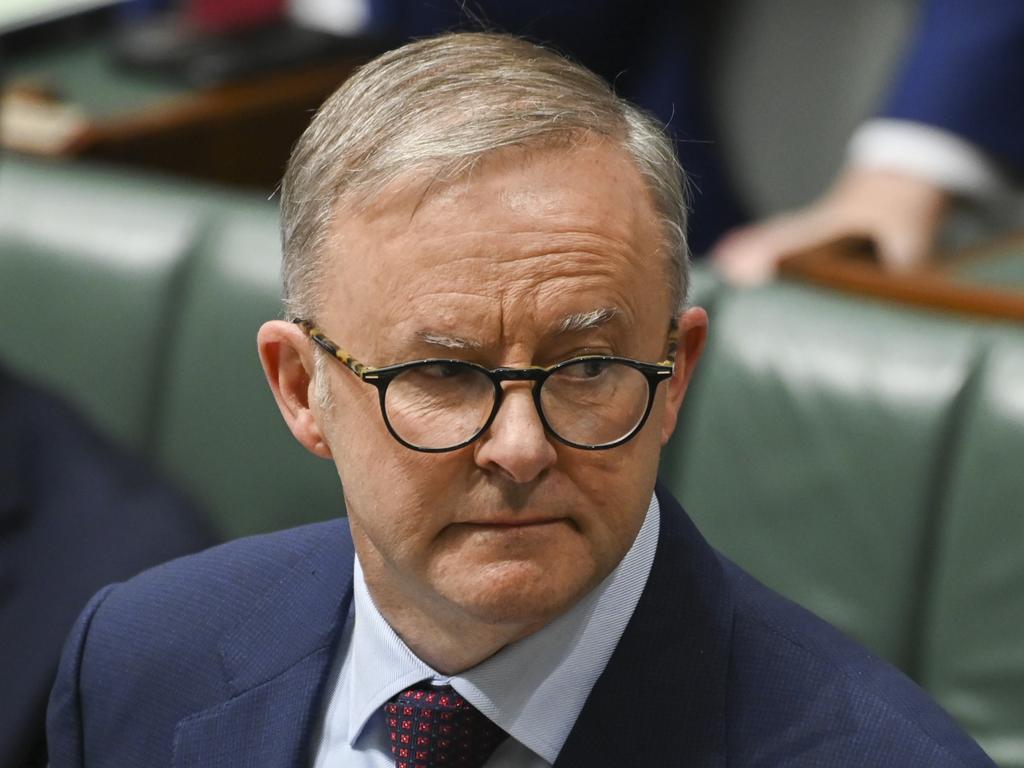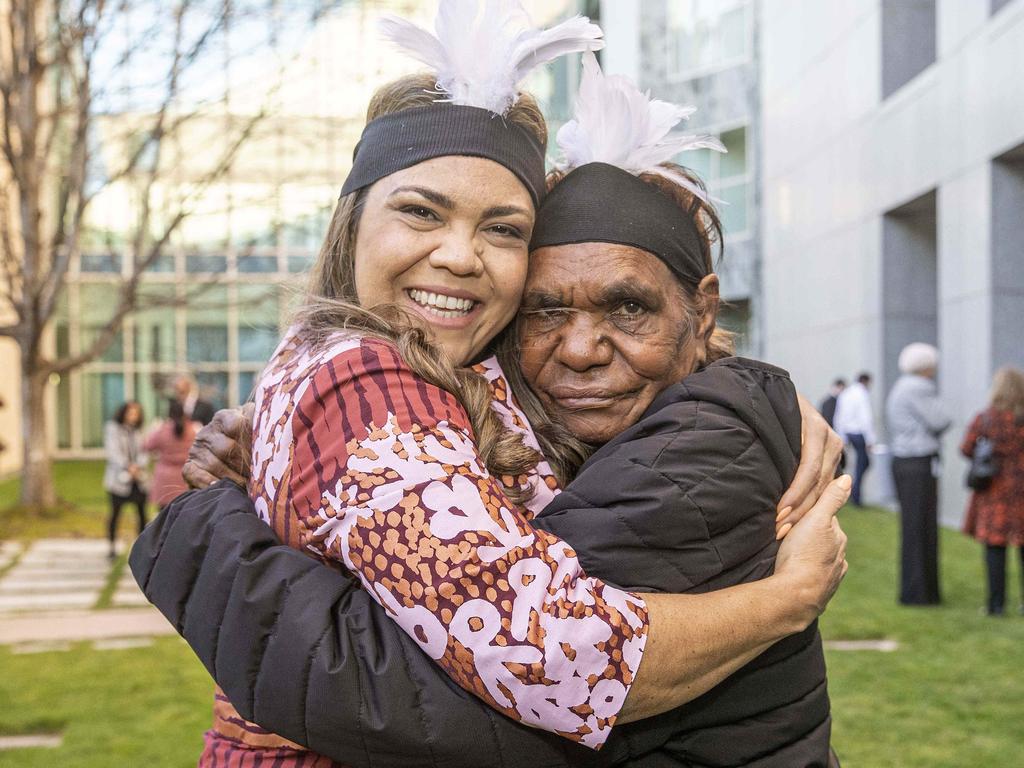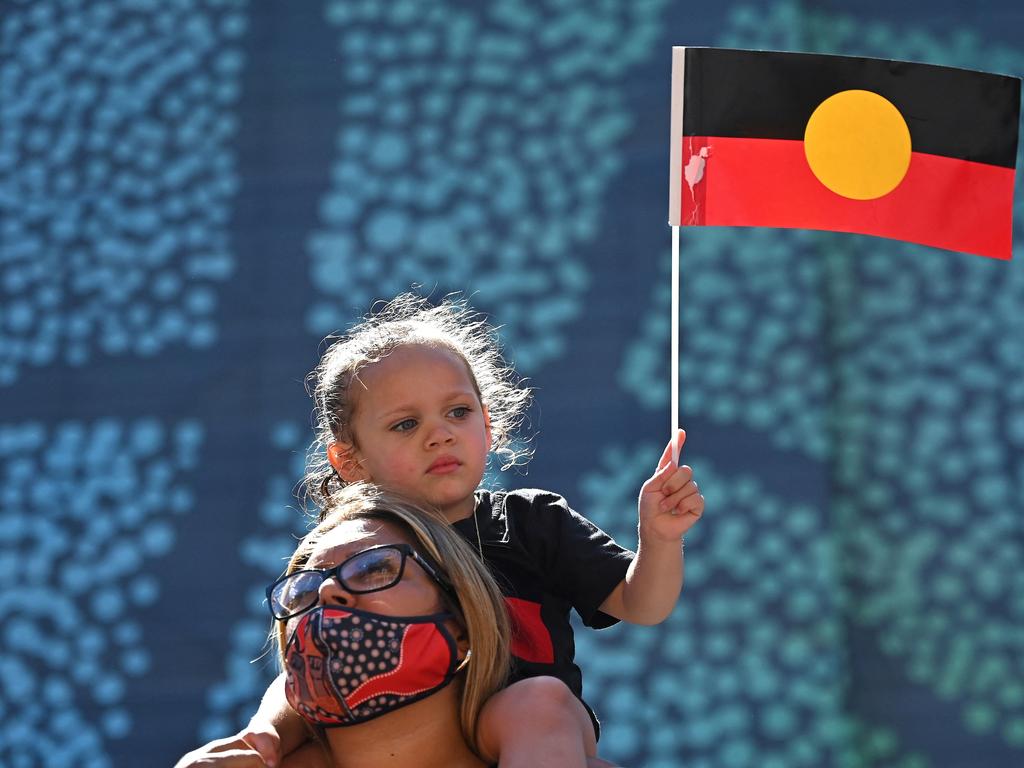Indigenous Australia wants real solutions, not symbolism
Two worrying government decisions demonstrate how useful an Indigenous voice to parliament could be.

In a parable for our times, the Manly Sea Eagles supplied movie stars with their gay pride jerseys before they even bothered to tell their players they would be dragooned into wearing them. Imagine professional athletes, mainly Pacific Islanders, used as billboards in what is a social/political campaign, without being consulted – get Hollywood on-board, the hired help will do as they are told.
Inclusion, like wicked, is a word whose meaning seems to have been inverted. Pluralism fades in this selfie age where the parading of tolerance matters more than being inclusive and respectful to real people in our daily lives. It is not hard to discern what should be the guiding principle here; just treat people with respect. At the risk of offending any militant atheists, we might recommend doing unto others as we would have them do unto us.

In the Senate this week Pauline Hanson railed against the acknowledgment of traditional owners that was read by Senate president Sue Lines just after the latter opened proceedings with the Lord’s Prayer. Hanson was condemned as racist by divisive Indigenous Greens senator Lidia Thorpe.
In truth, Hanson was expressing (rudely) a frustration shared by many voters who want unity over division and feel they are being preached at or shamed into deferring to fellow Australians. You do not have to agree with that sentiment to understand it and accept that it is not racism.
Lines later declared that, as an atheist, she would like to scrap the reading of the Lord’s Prayer. Leftist poseurs and political fashionistas shun any reference to Christian beliefs while bending over backwards to accommodate Indigenous spirituality.
Thorpe has aggressively asserted that sovereignty has never been ceded in this country and suggested the oath she swore to a “colonising” power was a necessary ruse to take her place in the chamber. She was absent from parliament this week and has yet to be sworn in for this term, so we eagerly await that ceremony when she will, presumably, cross all her fingers and toes.
Into this maelstrom of indulgence and egomania this week walked the new Coalition senator for the Northern Territory, Jacinta Nampijinpa Price. Strong, clear, passionate, and authentic, she spoke not of culture wars, ideological postures or historical grievances but of the lives of children and women lost, and communities forgotten.
Price highlighted a suspected murder-suicide north of Alice Springs last week that left a 30-year-old mother of three, Alena Tamina Kukla, and her two-month-old baby boy, Orlando, shot dead, along with a man.
“The mainstream media have largely been silent on these latest killings,” she said, confronting the nation with its own reality in her first words as a senator. “They have not sparked nationwide protests because the Indigenous victims have died at the hands of Indigenous perpetrators. Alena and Orlando were Australian citizens, like you and me. They deserve outrage to demand an end to violence and murder.”

Where Thorpe denies sovereignty, Price seeks to leverage it for the good of all citizens. We would not tolerate this cycle of violence and despair if it was unfolding in our suburbs.
“My goal is to halt the pointless virtue signalling and focus on the solutions that bring real change, that changes the lives of Australia’s most vulnerable citizens,” said Price. “Solutions that give them real lives, not the enduring nightmare of violence and terror they currently live.”
A cut-through voice already, Price is sceptical, if not antagonistic, towards an Indigenous voice to parliament. “This government has yet to demonstrate how this proposed voice will deliver practical outcomes and unite, rather than drive a wedge further between, Indigenous and non-Indigenous Australia,” she said.
Price is right about what the voice needs to do. But if vulnerable women and children have not had their voices heard in parliament before, if their issues have not been tackled, perhaps it is a representative voice to parliament that is required.
To win over Indigenous politicians such as Price and Senator Kerrynne Liddle – another Indigenous woman from Alice Springs elected as a Liberal senator in South Australia – the voice must deliver on a practical focus and unity. It will also be crucial to win over mainstream voters.
Fair enough. The voice is not worth pursuing unless it delivers tangible outcomes and advances reconciliation.
Two worrying government decisions demonstrate how useful a voice could be: the Northern Territory’s abolition of mandatory alcohol bans in Indigenous communities; and the federal government’s axing of the cashless debit card.
“I could not offer two more appalling examples of legislation pushed by left-wing elites and guaranteed to worsen the lives of Indigenous people,” said Price. It is a compelling point and, at least on the alcohol bans, it was echoed by the new Labor MP for Lingiari, Indigenous woman Marion Scrymgour.

Yet it seems to me that both these issues prove the point in favour of a voice. Should not an Indigenous representative body provide advice to government about the implications of these decisions?
Our innate sense of a “fair go” could see most Australians agree that when decisions are made about Indigenous people, they should have a say. But to harness that goodwill, politicians need to be clear about the voice, rather than rant about sovereignty, colonisers and endless deference.
It is understandable that voters would worry a voice might be hijacked by radicals and focus on the symbolic and political rather than the practical. All the more reason for conservatives to enjoin the debate.
Recent discussion in these pages, useful as it has been, tended to gloss over an important reality – there is more consensus on
the voice than disagreement. Liberal and Labor governments have had Indigenous advisory bodies of one kind or another for decades, and the Morrison government did extensive work to design a voice that it planned to legislate rather than enshrine in the Constitution.
The only real point of contention is whether the voice should be enshrined in the Constitution. A big question but the only one outstanding.
The reality of Indigenous consensus around the Uluru Statement from the Heart means there will be no Indigenous recognition in the Constitution without a voice. Recognition without a voice would be a retreat to mere symbolism – something conservatives should abhor.
The voice proposal is underpinned by the valid proposition that constitutional recognition ought to deliver practical benefits for Indigenous people. It would provide insurance that past mistreatment under our Constitution could not recur.
The report of the voice co-design group (declaration – I was one of a few non-Indigenous people involved) provides all the detail anyone needs about how local, regional and national voices could work. But it would be useful if the Prime Minister and his Indigenous Australians Minister, Linda Burney, outlined as soon as possible how much of that work they will embrace, or else outline alternative plans.
More important is the detail of the constitutional amendment. This is where precision is paramount to guard against future judicial activism but where there must be enough flexibility to allow future governments to reshape the voice.
Until today this debate has been like wrestling smoke, and not even those who support a constitutionally enshrined voice could pledge a vote, sight unseen. But the proposed referendum question and constitutional amendments revealed by the Prime Minister on Saturday make the argument real. My initial reaction is that the proposal is as close to ideal as you might get, although I will be keen to hear what constitutional lawyers say about the phrase “make representations” because it is a fundamental part of this bargain that the advice of the voice not be binding on government.
The suggestion from Janet Albrechtsen that the Constitution could empower governments to legislate and/or scrap the voice sounds like a reassuring compromise with a democratic safety net. But it will not do.
Such an amendment would mean Indigenous Australians are given nothing. Under the existing race power, the federal government already can legislate a voice or scrap it – so what would have changed?
Mandating a voice in the Constitution through a referendum means Indigenous interests will be protected in perpetuity, or until a subsequent referendum overturns it. The voice could and should be changed as required by future governments but not abolished without referring back to the people. These are the technical questions that are vital for this reform to proceed. But they are being blown out of the water by culture wars and the preoccupations of the virtue signallers.
A voice would be worthwhile and widely embraced if it provided a forum for addressing the sorts of issues Price drew attention to in the Senate this week. But many voters will worry a voice would be used more often by people such as Thorpe, attacking our nation, undermining our sovereignty, and dividing us rather than reconciling us.
The truth is that a voice will be messy – that is always the way with representative democracy. The key question is whether it will be worthwhile.
It seems to me that a nation losing children, losing whole communities, losing generations cannot think that carrying on without change, without effort, is an acceptable choice.








The virtue signallers have created chaos in rugby league, they are undermining voters’ faith in their parliament, and they could well destroy what many regard as a meaningful national reform – an Indigenous voice to parliament. Sanctimony is often the enemy of tangible good works.